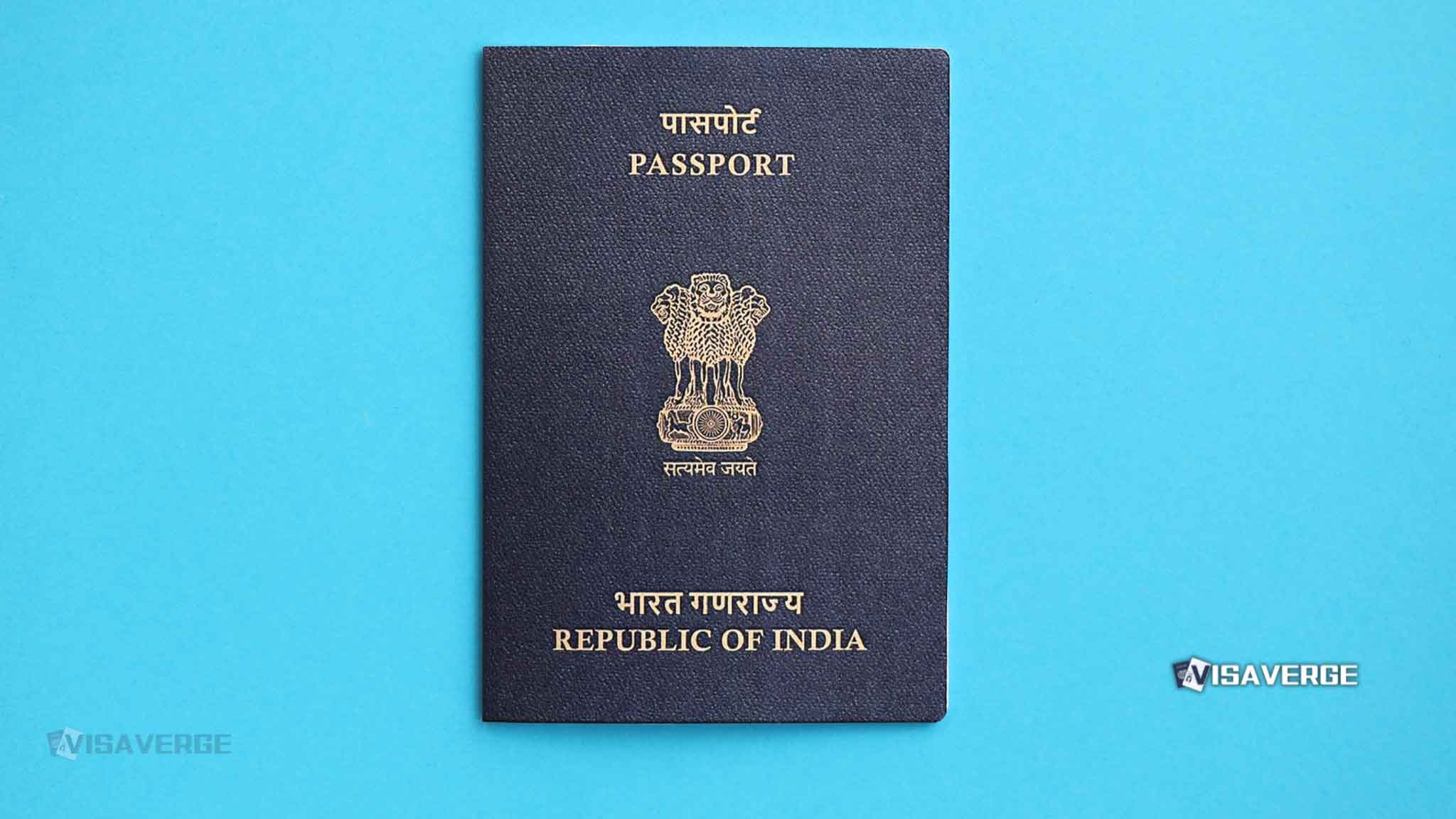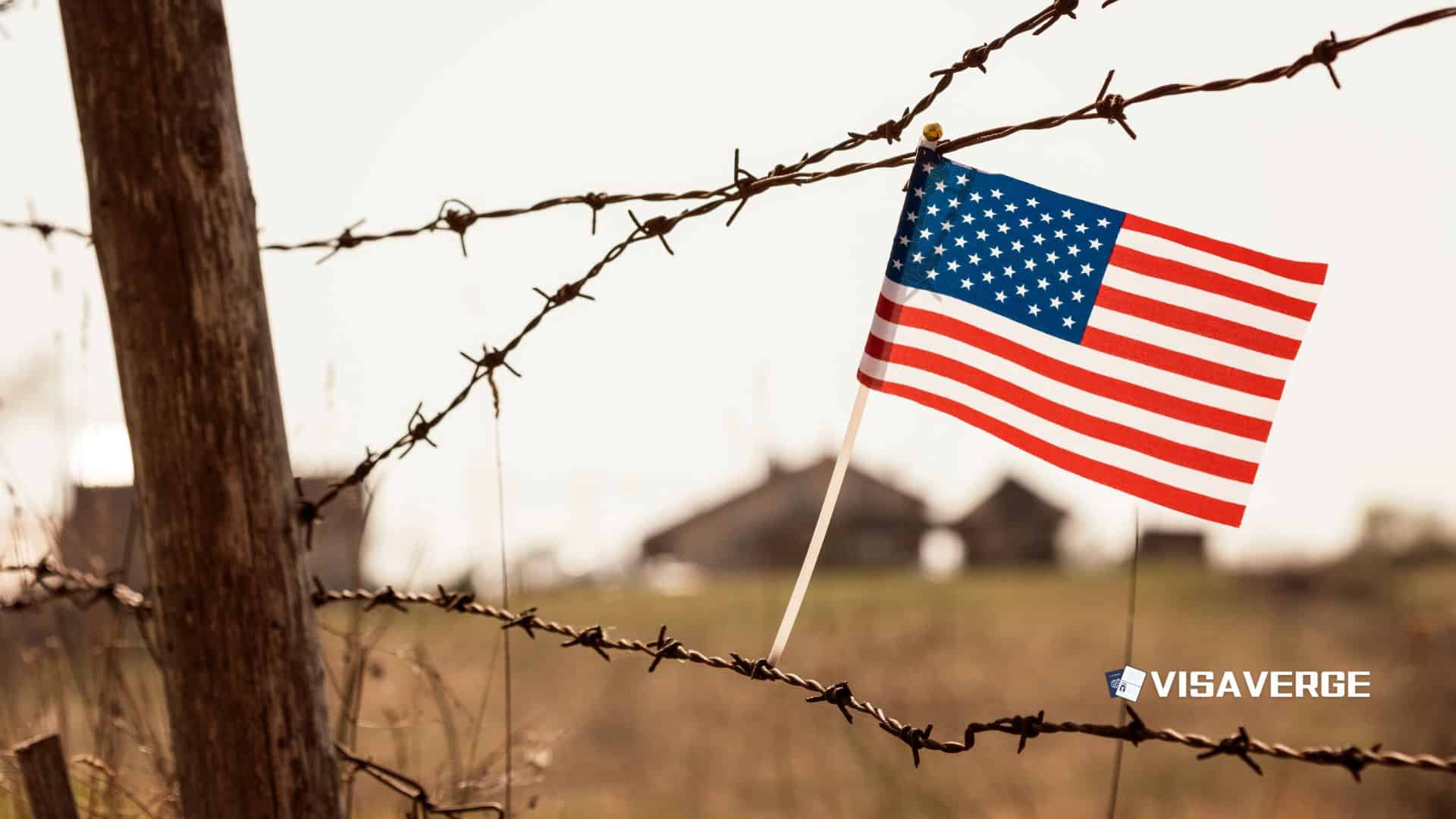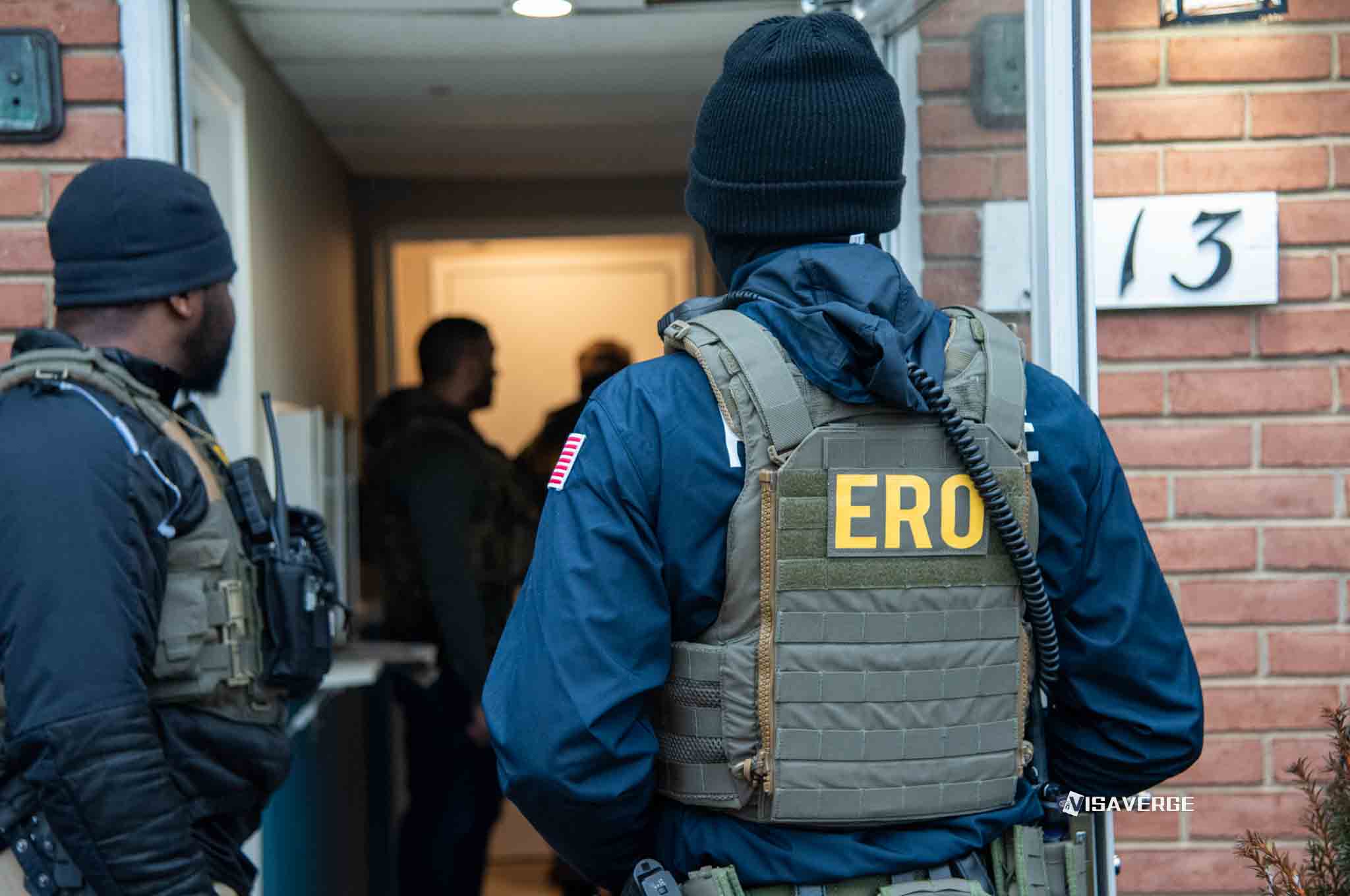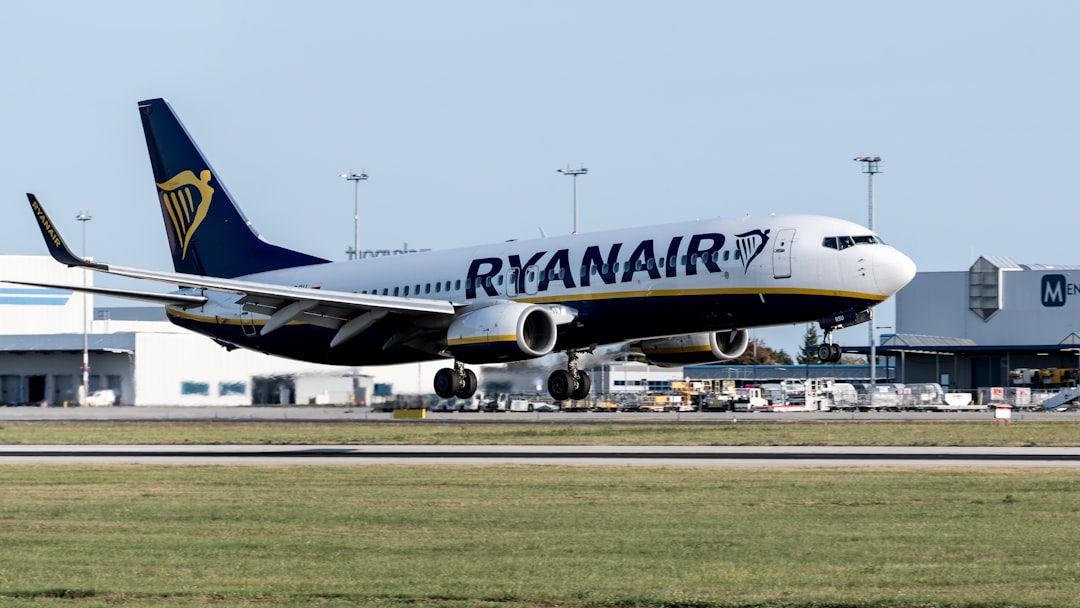(DELHI-NCR) India has expanded immigration enforcement across major cities in 2025, with Delhi-NCR at the center of stepped-up checks on undocumented migrants, landlords, and employers. From May through July, Delhi Police and the Foreigner Regional Registration Office (FRRO) intensified verification drives across outer districts and Noida, detaining dozens of suspected Bangladeshi and Rohingya nationals after residence checks in JJ clusters and rented flats.
Raids also reached workshops and construction sites in Najafgarh, Dwarka, and Okhla industrial areas. Authorities cite Union Home Ministry directions to identify, detain, and deport illegal foreigners under the Foreigners Act, 1946, the Passport (Entry into India) Rules, 1950, and related orders.

Policy drivers and legal basis behind the crackdown
The Home Ministry reminded states and union territories in early 2025 to intensify action against illegal foreigners and facilitators, stressing landlord and employer responsibility.
Enforcement teams are invoking:
– Foreigners Act, 1946 (Section 14, illegal stay)
– Foreigners Order, 1948
– Passport (Entry into India) Rules, 1950
– Passports Act, 1967
– IPC Sections 420/468/471 for forgery networks
– Section 188 IPC against landlords who ignore tenancy verification rules
Officials also state that undocumented Rohingya are considered “illegal foreigners” under current policy. Removals are coordinated via Myanmar or a third country, while courts continue to examine non-refoulement claims on a case-by-case basis.
Expanded operations in Delhi-NCR and other metros
Authorities describe a broader map of action as of August 11, 2025:
- Delhi-NCR: FRRO and police verification drives in May–July led to detentions in outer Delhi and Noida. Cases were filed against non-compliant landlords under Section 188 IPC and local tenancy rules.
- Mumbai–Thane: Joint checks in Mankhurd, Govandi, and Nallasopara in June–July picked up more than 120 suspected undocumented migrants. FIRs target document facilitators under IPC forgery provisions and the Passports Act, 1967.
- Bengaluru: A May–July drive in East and South divisions (Ramamurthy Nagar, Bellandur, Electronic City) included detentions of workers from Bangladesh and Africa. Employers in housekeeping and security services were warned under the Foreigners Order, 1948.
- Assam–Northeast: Police and the Border wing continued checks along char areas and construction corridors. Foreigners Tribunals processed references, with several dozen held in detention centers pending removal.
- West Bengal: Kolkata Police and BSF South Bengal Frontier reported apprehensions near border districts and cracked down on fake Aadhaar/ration card rackets.
- Hyderabad: Police targeted Aadhaar/PAN forgery networks tied to labor colonies in Gachibowli and Kukatpally.
- Kerala: Verification at fish landing centers and plywood units led to limited detentions of suspected undocumented Bangladeshis; employers were reminded of Registration of Foreigners Rules, 1992 obligations.
Enforcement metrics and deportation workflow
Police and FRRO bulletins describe area-wide verification drives yielding from dozens to low hundreds of detentions per city. Some people are released after document checks; others are moved to FRRO custody for deportation.
Key points:
– All-India monthly totals are not posted centrally; MHA aggregates are typically quarterly.
– The Ministry of External Affairs reported increased deportations in 2025, mostly through Bangladesh and Myanmar routes.
– Handovers to FRRO and the Bureau of Immigration occur for removal via integrated check posts such as Petrapole and Agartala.
Impact on worksites, housing, and employers
Field activity is reshaping daily life and local economies.
Informal labor markets
– Sectors affected include construction, waste recycling, housekeeping, and small manufacturing.
– Worker absences after raids are reported; contractors now ask for Aadhaar, passport, FRRO registration copies, and police-verified tenancy forms before hiring.
Housing and landlords
– Landlords face liability when they skip tenant verification. Notices and cases under Section 188 IPC have followed.
– Tenants in JJ clusters and low-income rentals report frequent checks and document seizures for verification.
Employers
– Police warn that failure to verify workers’ nationality and visa status can trigger action under the Foreigners Order, 1948, alongside Shops and Establishments audits.
According to analysis by VisaVerge.com, the current enforcement wave is broader than typical city-level drives, with pressure landing not only on undocumented migrants but also on local networks—landlords, brokers, and employers—who may overlook documentation duties.
Due process, risks, and where legal help fits in
Lawyers and rights groups flag risks of wrongful detention and lack of language or legal aid, especially for Rohingya families and long-term residents with mixed documentation histories.
- Courts continue to hear habeas petitions and deportation challenges.
- High Courts accept urgent filings for unlawful detention or imminent removal.
- Legal services authorities and NGOs provide assistance, including for children, who fall under child protection standard operating procedures during detention.
Important: Minors trigger child protection SOPs and families should seek legal aid immediately if detention occurs.
How raids typically unfold
Authorities outline a step-by-step process:
- Police/FRRO identification
- Area drives or intelligence-led checks.
- Officers examine passports, visas, Registration Certificates (RC),
C-Form, Aadhaar, and PAN. - Suspected undocumented persons are detained for inquiry.
- FRRO case registration
- FRRO opens proceedings under the Foreigners Act and Foreigners Order.
- Biometrics are collected and nationality verification is requested from the relevant mission.
- Detention pending removal
- If found to be illegal, the person is placed in a detention/holding center.
- Families can seek court relief; minors trigger child protection SOPs.
- Exit and deportation
- Once nationality is verified and travel documents issued, the Bureau of Immigration escorts the person to an international checkpoint or airport for removal.
- Separate prosecutions may proceed against employers/landlords.
For official procedures, the e-FRRO portal provides service access for foreign nationals and is the primary online channel for FRRO interactions: https://indianfrro.gov.in/eservices/home.jsp. Hotels and lodging providers file the mandatory C-Form online here: https://indianfrro.gov.in/frro/FormC.
Practical compliance tips for Delhi-NCR stakeholders
- Keep copies of identity and immigration documents and proof of lawful stay. Where required, complete police tenancy verification and keep receipts.
- Employers should maintain full KYC records of workers, including nationality, visa type, and FRRO-related documents.
- Retain
C-Formand tenant verification acknowledgments where relevant. - In case of detention or a family member’s detention, gather documents quickly and seek legal help to file urgent petitions.
Outlook: continued drives and possible SOP update
Over the next three to six months, state police and FRROs plan to continue city-wide verification drives, with a stronger focus on forgery networks and landlord/employer accountability.
Officials expect:
– More coordinated deportation convoys through eastern integrated check posts, depending on clearances from neighboring countries.
– Police leaders have asked the Home Ministry for uniform guidance on detention, verification, and removal timelines.
– Updated MHA SOPs could follow.
Data gaps and public reporting
India does not publish a single, public, monthly national total for detentions or deportations of undocumented migrants.
- City and state releases share incident-level numbers.
- Nationwide figures are typically bundled in periodic MHA summaries.
- Rights groups continue to call for more transparent data to track outcomes, timelines, and the impact on families.
Where to get official help and information
- Ministry of Home Affairs (Foreigners Division): foreignersdiv-mha[at]gov[dot]in; official portal via the e-FRRO link above.
- Bureau of Immigration/FRRO: e-FRRO services for queries and compliance: https://indianfrro.gov.in/eservices/home.jsp.
- Local police: City portals host tenancy and employee verification procedures; check your district police website for current forms and instructions.
This Article in a Nutshell
Delhi-NCR enforcement surged May–July 2025 as FRRO and police raided JJ clusters, rentals, and worksites. Detentions targeted Bangladeshi and Rohingya suspects, prompting landlord and employer accountability under Foreigners Act provisions. Legal aid, habeas petitions, and FRRO processes shaped outcomes while national SOP updates and deportation convoys remain possible soon.













